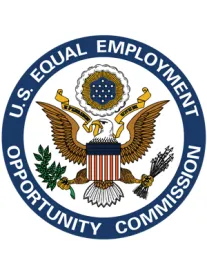Can an employer mandate or incentivize a COVID-19 vaccination? If so, what exceptions or exclusions apply? As COVID-19 vaccines have become increasingly available in the United States, and with new Centers for Disease Control and Prevention (CDC) guidance that permits fully vaccinated individuals to dispense with certain safety precautions, employers have been grappling with these questions.
The Americans with Disabilities Act (ADA), the Genetic Information Nondiscrimination Act (GINA) and Title VII of the Civil Rights Act each impose obligations on employers and bestow rights to employees that intersect with an employer’s desire to require or encourage a COVID-19 vaccination. Initial Equal Employment Opportunity Commission (EEOC) guidance on COVID-19 vaccinations issued in December 2020 left many employer questions unresolved.
IN DEPTH
On May 28, 2021, the EEOC issued long-awaited additional guidance to address these complicated questions and confirm the following:
-
Federal law permits vaccine mandates. Federal equal employment opportunity laws do not prevent an employer from requiring a COVID-19 vaccination for all employees who physically enter the workplace, subject to the reasonable accommodation provisions of the ADA and Title VII.
-
Employers must watch for disparate impact. The EEOC cautions employers who have a mandatory vaccine requirement to consider how such a requirement may disparately impact certain employees based on characteristics protected under federal law, as some individuals or demographic groups may face greater barriers to receiving a COVID-19 vaccine than others.
-
Employers can ask employees about their vaccination status and require proof but such information is confidential. Employers may require written documentation and confirmation that an employee received the vaccine from a third party, but must ensure that such information is kept in an employee’s confidential medical file.
-
The EEOC provides examples of potential reasonable accommodations. Examples of a “reasonable accommodation” for employees who cannot comply with a vaccine mandate because of a disability; religious belief, practice or observance; or pregnancy include requiring the unvaccinated employee to:
-
Wear a face mask at work
-
Work at a social distance from co-workers or non-employees
-
Work a modified shift
-
Get periodic COVID-19 tests
-
Work via a provided telework arrangement
-
Accept a reassignment
-
These are examples only and may not work or be reasonable in all cases. An interactive process is required to determine what accommodations are reasonable and sufficient to mitigate any direct threat to the workplace.
-
Pregnant employees may be entitled to accommodation. Employees who are not vaccinated because of pregnancy may be entitled to accommodations to keep working if an employer makes workplace modifications or exceptions for other individuals.
-
Employers can provide vaccination information. The EEOC encourages employers to provide information to employees about how they and their families can get vaccinated, including providing them with transportation to vaccination sites.
-
Manager training is encouraged. As a best practice, an employer introducing a COVID-19 vaccination policy and requiring documentation or other confirmation of vaccination should train managers on reasonable accommodation policies prior to rolling out the policy. All employees should also be notified that the employer will consider requests for reasonable accommodation based on disability on an individualized basis. Manager training may include reminders to direct employees with accommodation requests to the appropriate human resources professional.
MANDATORY VACCINATION PROGRAMS
The EEOC guidance also tackles several questions about mandatory vaccinations. The guidance confirms that mandatory vaccination programs are permissible as long as they comply with the requirements of the ADA and Title VII.
Specifically, for employers who have mandatory vaccination policies, the guidance provides:
-
Employers may not require a vaccine for an employee whose disability prevents the employee from becoming vaccinated unless the employer is able to establish a “direct threat” (defined as a “significant risk of substantial harm” that cannot be eliminated or reduced by reasonable accommodation). The guidance emphasizes an employer’s obligation to make an individualized assessment of the employee’s ability to perform the essential functions of the job.
-
In analyzing whether an employee is a “direct threat,” the guidance directs an employer to consider:
-
The type of work environment, such as whether the employee works alone or with others, and whether the employee works inside or outside
-
The available ventilation
-
The frequency and duration of the direct interaction the employee typically has with other employees and/or non-employees
-
The number of partially or fully vaccinated individuals already in the workplace
-
Whether other employees are wearing masks or undergoing routine screening testing
-
-
The space available for social distancing.
-
If the “direct threat” assessment demonstrates that an employee with a disability who is not vaccinated would pose a direct threat to themselves or others, the employer must consider whether providing a reasonable accommodation, absent undue hardship, would reduce or eliminate that threat.
-
Employers must attempt to accommodate employees who cannot get a COVID-19 vaccine because of a disability. The guidance reiterates that employees need not use the specific term “reasonable accommodation” in their request in order to trigger an employer’s obligations under the ADA.
ADMINISTERING THE VACCINE TO EMPLOYEES
Employers who administer the COVID-19 vaccine to employees (directly or through a third-party contract), whether on a mandatory or voluntary basis, have been seeking guidance regarding what pre-vaccination questions are permissible under the ADA. Generally, the ADA restricts the circumstances in which employers may require medical examinations (procedures or tests that seek information about an individual’s physical or mental impairments or health) or make disability-related inquiries (questions that are likely to elicit information about an individual’s disability). The EEOC’s guidance distinguishes between a mandatory employer-administered vaccination program and a voluntary program.
For employers who require employees to receive a COVID-19 vaccination from the employer or its agent, the EEOC confirms that the ADA’s restrictions apply to the screening questions that must be asked immediately prior to administering the vaccine if the vaccine is administered by the employer or its agent. Because the pre-vaccination screening questions are likely to elicit information about a disability, the ADA requires that they be “job related and consistent with business necessity” when an employer or its agent administers the COVID-19 vaccine. To meet this standard, an employer would need to have a reasonable belief, based on objective evidence, that an employee who does not answer the questions and therefore cannot be vaccinated will pose a direct threat to the employee’s own health or safety or to the health and safety of others in the workplace. Therefore, when an employer requires that employees be vaccinated by the employer or its agent, the employer should be aware that an employee may challenge the mandatory pre-vaccination inquiries, and that the employer would have to justify them under the ADA.
For employers who administer a COVID-19 vaccine on a voluntary basis, the EEOC clarifies that an employer may ask disability-related screening questions before administering the COVID-19 vaccine without needing to satisfy the “job-related and consistent with business necessity” standard.
VOLUNTARY COVID-19 VACCINATIONS, THE ADA AND THE GINA
The EEOC provides additional guidance for employers who offer voluntary vaccinations in compliance with the ADA and the GINA. The guidance confirms:
-
An employer may offer an incentive to employees for providing information about their vaccination received by a third-party provider.
-
Under the ADA, an employer may offer an incentive to employees for voluntarily receiving a
vaccination administered by the employer or its agent as long as the incentive is voluntary and is not so substantial as to be coercive. -
Under the GINA, an employer may offer an incentive to employees for providing
documentation or other confirmation from a third party not acting on the employer’s behalf, such as a pharmacy or health department, that employees or their family members have been vaccinated. The EEOC also confirms that under the GINA, an employer may ask employees to show documentation or other confirmation that the employee or a family member has been vaccinated. -
Under the GINA, an employer may offer an incentive to employees in exchange for an
employee receiving a vaccination administered by the employer or its agent, but may not offer any incentives to an employee in exchange for a family member’s receipt of a vaccination from an employer or its agent. -
Under the GINA, an employer may offer vaccinations to an employee’s family members if the
employer takes certain steps to comply with the GINA. Specifically, employers:-
Must not require employees to have their family members get vaccinated
-
Must not penalize employees if their family members decide not to get vaccinated
-
Must ensure that all medical information obtained from family members during the screening process is only used for the purpose of providing the vaccination; is kept confidential; and is not provided to any managers, supervisors or others who make employment decisions for the employees
-
Must obtain prior, knowing, voluntary and written authorization from the family member before the family member is asked any questions about her
medical conditions.
-
The EEOC appears to be working on additional guidance. Right before the EEOC’s guidance was issued, the CDC issued new guidance for unvaccinated individuals in the workplace. The EEOC is currently considering the CDC’s guidance, and we expect additional guidance in the near future.




 />i
/>i

